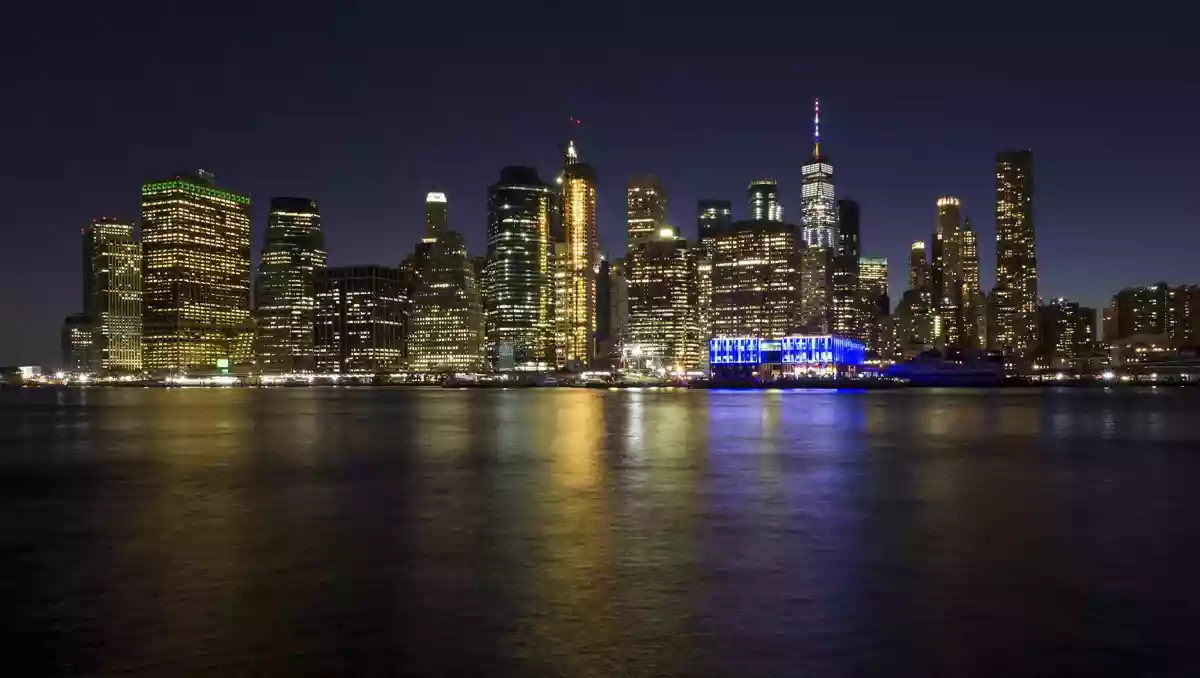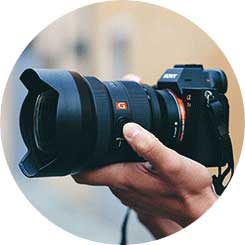- Call us: 01444 237070
- Contact Us
- Stores
- Sign In / Register
-
- Back
- Used Cameras
- Used Accessories
- Used Lenses
- Used Video
- Used Film Equipment
- Used Stock Alert
- Used Blank Test
- Sell or Part Exchange
- Used Clearance
- Recently Added Used Equipment
- Park Picks
- All Used Black Friday Deals
- Faulty
- Trade-In
- Blog
- New in
- Call us
- Contact us
- Stores
- Sign in
- Categories
- Tips & Inspiration
- Reviews
- News
- Events
- Features
- Buying Guides
- Competitions
Leica Q Street Photography in New York
Is the Leica Q the perfect camera for Street Photography? We took it to The Big Apple to test...

What better place in the world to try your hand at some street photography than New York? With towering, vertical lines just waiting to act as a backdrop, The Big Apple truly lived up to its reputation as the city that never sleeps. A perfect blend for capturing those candid moments.
We had very particular requirements for finding the perfect street photography camera, and the Leica Q ticked all of the boxes. Is the Leica Q the best street photography camera?
What to look for in a street photography camera.
We wanted something small and discreet. This immediately ruled out a DSLR – I’ve taken these on holidays before, and inevitably leave it at the hotel for chunks of the trip as it is cumbersome, and frankly ear-marks you as a tourist. Even going mirrorless meant I’d be tempted into larger lenses to get the quality that I wanted.
Image quality was paramount, so was the ability to shoot full frame and in RAW, and a high quality prime lens narrowed my list down to the Leica Q, the Sony RX1 or RX1R II, and the Panasonic LX100 MK II. The Panasonic has a 4/3 sensor, and the RX1 doesn’t have the fastest autofocus, so the Leica Q it was.
Leica Q - discretion is key
The Q is small and discreet – just about fitting in a jacket pocket. We wrapped it up in a Domke wrap and it went everywhere with me. Going off-topic, the Domke blanket is a genius item that lets you chuck a camera in your normal bag and keeps it protected - no dedicated camera bag here. Now the red dot on the front was the only part that made us feel self-conscious at any stage, but we took it with us everywhere, from the subways to Times Square and Brooklyn Bridge at night. I would not have done this with a DSLR due to the size and concerns over security, and low light shooting really does enhance your street photography repertoire.
How does a discreet camera help with street photography?
The ability to shoot from the hip allows you to capture shots without people even realizing you are taking a photo. The wide-angle 28mm fixed lens accommodates the lower viewpoint, and this enhances your shots as it offers a unique angle. The fast f/1.7 lens also helps you set a fast shutter speed, which lets you freeze action. Revisit the ideal street photography settings in our blog with Olympus street photographer Jez Sugars.
Leica Q - how it handles
One of the joys of working as a camera blogger is that you get to review a broad range of the latest, greatest kit going. At £3650, the Q is certainly not cheap, but it’s hands down the camera that has made the biggest impression on me straight away. I was smitten with how it handled, and it was because of this I found myself pushing my photography to a higher level – willing myself to head to that extra location, or wait an extra hour for the right light. The camera is naturally set up to be use in Aperture mode, with a delightful aperture ring that feels solid and classy. It’s easy to override the shutter, switching into fully manual before you know it with the shutter speed dial.
Leica Q performance
We set a top ISO as leaving it on auto had a tendency to push it to 32000, where some noise was visible. The Dynamic range was impressive – look at how much detail we could retrieve from the shadows of the footballers playing in Brooklyn. This was a strongly backlit shot against a low, setting sun - which we would normally expect to remain in silhouette, but the DNG let us pull out the detail.
The 28mm lens produced gorgeous, sharp results – the shots of south Manhatten’s recognizable skyline was taken on a long exposure and still came out pin-sharp. The 28mm field of view was perfect for street photography in New York, as you want to capture the environment – it’s wide enough to land the shots you want.
There is a case for saying that 35mm lets you get closer to your subjects, but we had no problem getting candid shots of strangers with the 28mm. Plus, with the camera being so discreet, I was able to get closer to subjects than I would normally dare.
The ‘Leica Look’
It would be remiss of me not to mention the Leica’s colour profile. I religiously shoot in RAW and edit my pics before converting into JPEG. I love the Canon colour profile that their RAWs give, but loosely I’d say I like to make it 5% more punchy by clipping levels and curves. The colour rendition and quality of the Leica’s was so good that I simply didn’t want to touch them. Even when I did, my main edit was to reduce highlights from overblown sky – indicative of correcting a lack of a graduated ND filter (or my own exposure settings) rather than anything the camera could have done better.
Leica Q – the perfect street photography camera?
It’s discreet, it allows you to instinctively shoot in manual / aperture mode, the build quality is great. The lens is sharp, and super bright in low light. You can achieve fantastic bokeh, while the camera produces warm, soft colour tones that are unmistakably Leica.
My time in New York was genuinely enhanced by having this camera with me – I was emboldened by its discreet design, and encouraged to take more and more shots due to the quality of what I was creating. I’d perhaps rather the camera did not have the famous red dot on the front, but other than that I wouldn’t change a thing.
All images by Ashley Laurence
Images shot with the Leica Q
View the Domke blanket - it's a game changer for transporting kit!
You may also like:
A guide to street photography with Olympus
Why Leicas are worth the cost
Visiting the Leica factory in Wetxzlar, Germany
Leica launch the Leica Q
Share this post:
By Park Cameras on 05/11/2018

Trade in your old equipment
Fast and easy trade in service ensures your old gear is collected efficiently and you are paid quickly! It's very simple to trade in your unwanted photography gear. Just head over to our dedicated Sell or Part Exchange page, fill out the details, and we'll get back to you with an offer for your old gear. Take the cash, or put it towards the cost of your new gear. It's up to you! Find out more
sign up to the newsletter
Keep up to date on the latest photography news, events and offers. Sign up now
